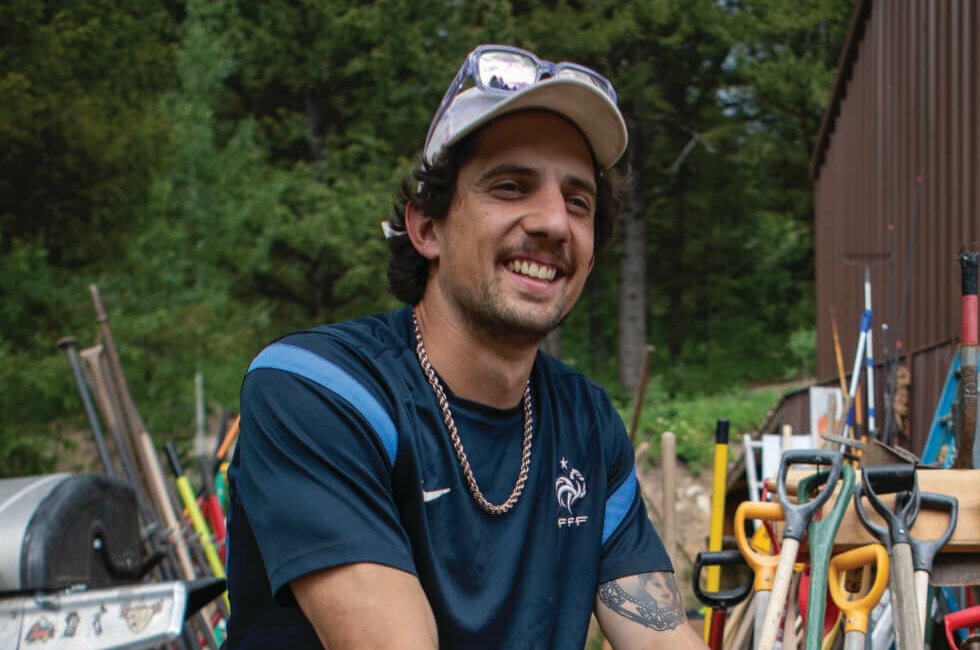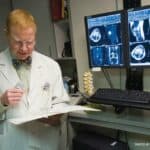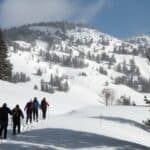Read The
Current Issue
Pierre Bergman
Adaptive athlete and activist
// By Rachel Walker
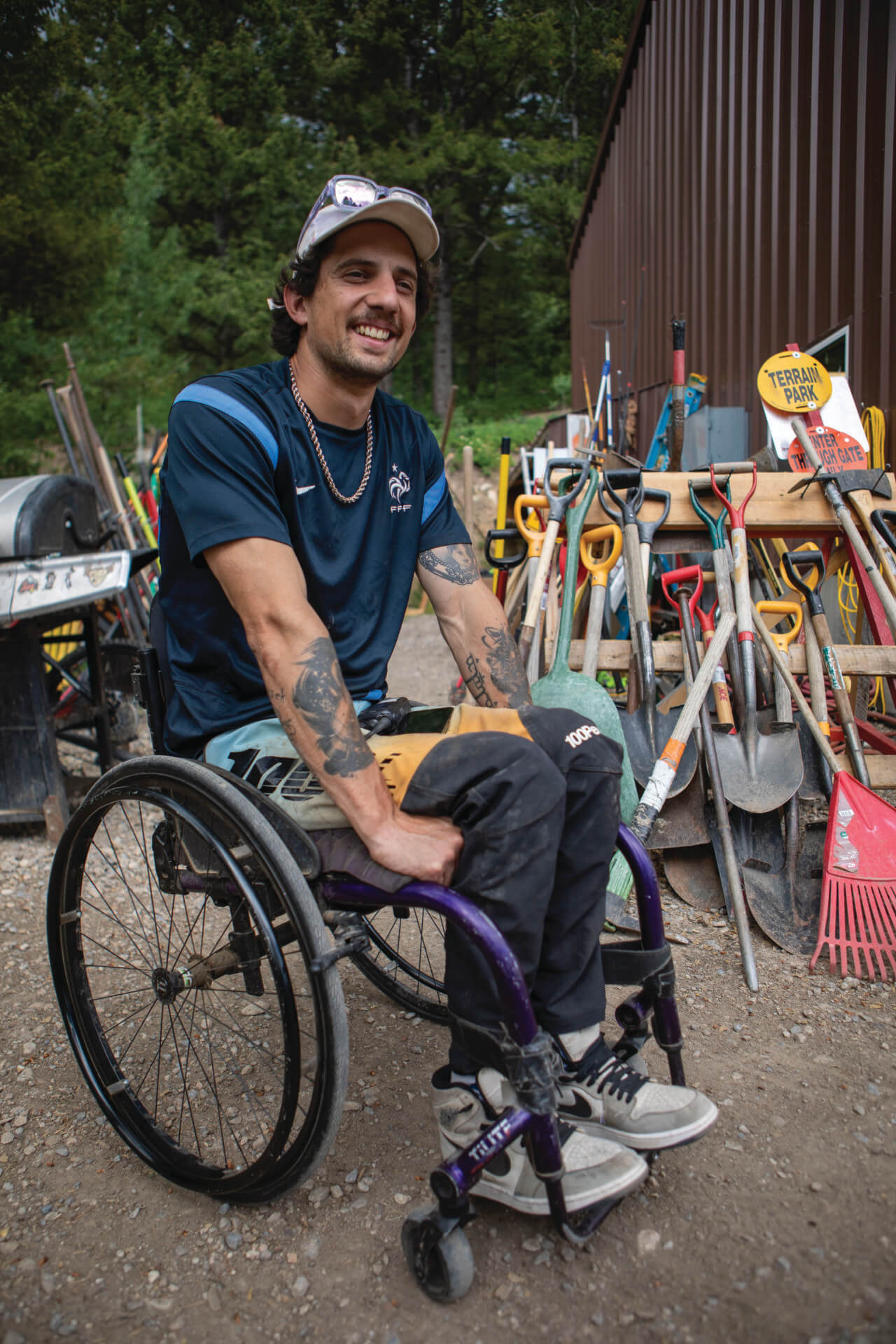
usable for everyone, disabled and able-bodied alike. Photo by Reed Mattison
Most everyone who has moved to Jackson Hole and made the choice to stay—an endeavor significantly more complicated than moving to a more populous, less expensive place with ample housing and employment—has a specific before/after moment that led to their decision. Before: law school; after: ski bum. It’s a profound shift in one’s life direction. But sometimes, the before/after is truly remarkable. Life-changing. Such is the case for 32-year-old Pierre Bergman, who moved to Jackson Hole in May 2016.
In his “before,” Bergman was a snowboarder from San Diego lucky enough to have a free place to crash for a season or two. He arrived at the beginning of summer, got a job, made friends. That first winter, he shredded 120 days. One season turned into another and then another. He met a girl, and then went on a fateful mountain bike ride on Teton Pass on June 15, 2020.
That ride marks the beginning of Bergnan’s “after.” He broke his back in a crash and sustained a complete spinal cord injury, losing the use of his core and legs and, in an instant, becoming a wheelchair user for life.
After enduring a harrowing rescue, emergency surgery, and a stint in the Intensive Care Unit at Eastern Idaho Regional Medical Center, Bergman moved to Craig Hospital in Englewood, Colorado, a world-renowned rehabilitation hospital for spinal cord and traumatic brain injuries, to learn how to live a full life in his utterly transformed body. Paralyzed from the waist down, Bergman learned how to navigate a wheelchair over obstacles and through grocery store aisles. Craig taught him how to care for his body, prevent sores, and manage pain. The hospital is designed for wheelchair users and others with disabilities, and the therapists at Craig are devoted to empowering their patients as they help them navigate the physical and mental challenges of their trauma. “Craig was so helpful with the figure-it-out mentality,” he says. “It’s a model of how the world could be, should be.”
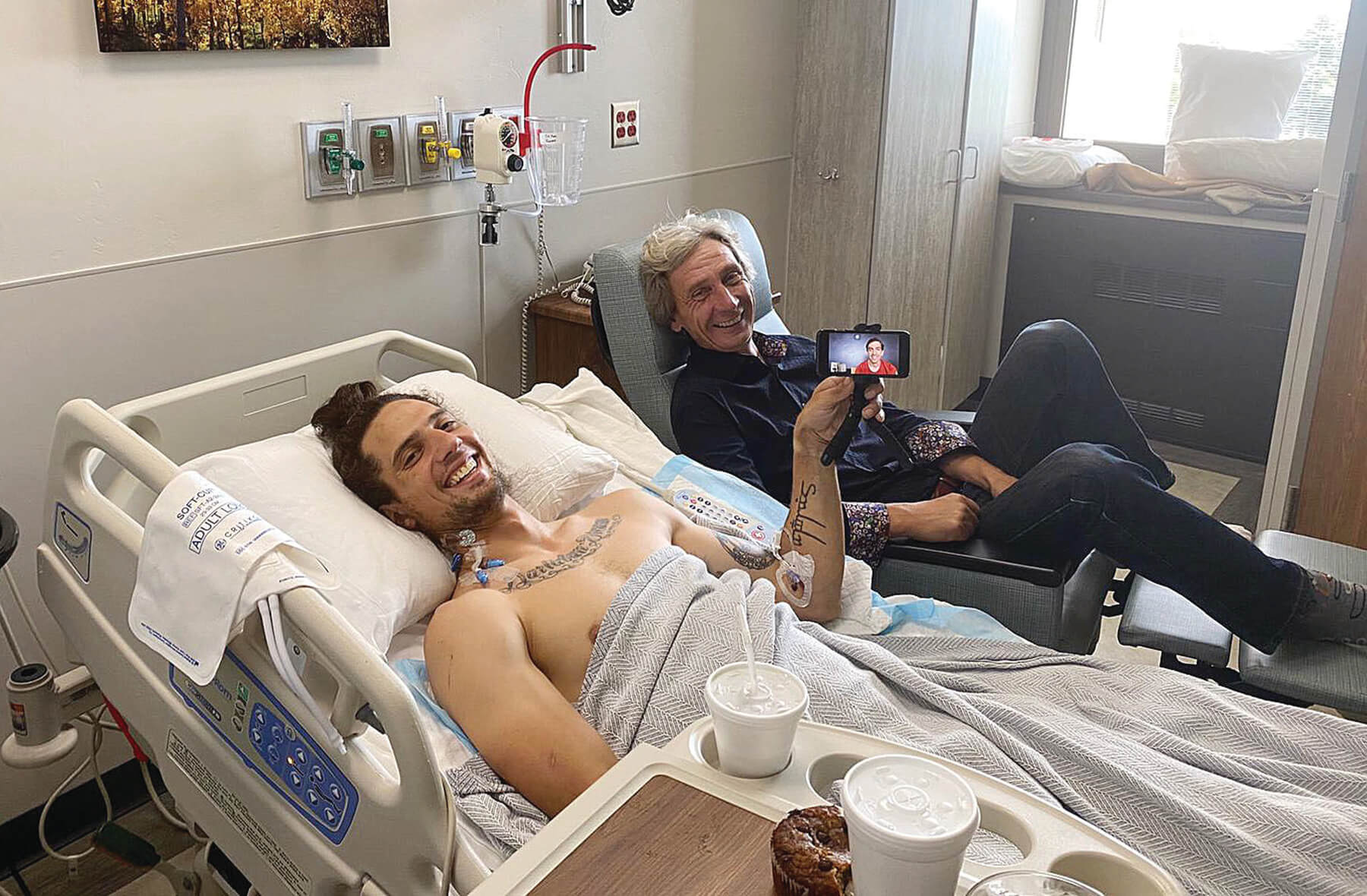
At his side was his then-girlfriend-now-wife May Gezzi. He proposed to her at Craig Hospital, and they married three years later in September 2023. When Bergman was discharged from Craig, the couple headed back to Jackson, despite the potential challenges of living in an adrenaline-junkie outpost where success can be measured by the number of days spent on the slopes, miles logged on the trail, or distance hucked off a kicker.
With its cold and snowy winters and lack of sidewalks, Jackson poses difficulties for wheelchair users. Housing is sparse, and a lot of places are two stories. And Bergman’s winter job—park groomer at Jackson Hole Mountain Resort—would require operating a snow cat through the night. Nevertheless, he and Gezzi knew that Jackson was where they wanted to be, and, to their surprise, they only needed to change a few things in their lives to make it work.
“Our old place would not work because it was on the second floor, so we looked for single-level homes or condos and got extremely lucky, finding one pretty quickly,” Bergman says. After adding a ramp to the entrance of their new abode, the couple had a home Bergman could access and that did not need any interior changes. Bergman got a primary doctor for the first time in his life and began working with physical therapist Sara Starc, whom he credits with helping his recovery and maintaining strength and health.
And his grooming job at Jackson Hole Mountain Resort was waiting for him. After working closely with his manager to develop a system to get in and out of the cat independently, Pierre was good to go; cat drivers use their hands to control the machine, and Pierre’s upper body was not impacted by his accident.
To access the cat, he drives a utility terrain vehicle (UTV) with a long pad in it from the JHMR operations building to the cat, which is parked slightly higher on the hill near the top of the Teewinot lift. From there, he pulls up to the cat tracks, puts the pad on the tracks, and uses his upper body to hoist himself from the UTV to the cat tracks and then into the cat—a movement known as a “transfer.” The grooming crew supports him, cleaning, inspecting, and fueling the cat.
“I feel fortunate to have a crew willing to help out and carry a little extra load,” he says.
When his shift is done, he skis in a sit ski. To watch him today, he looks like a natural careening down the slopes. But Bergman endured a sharp learning curve.
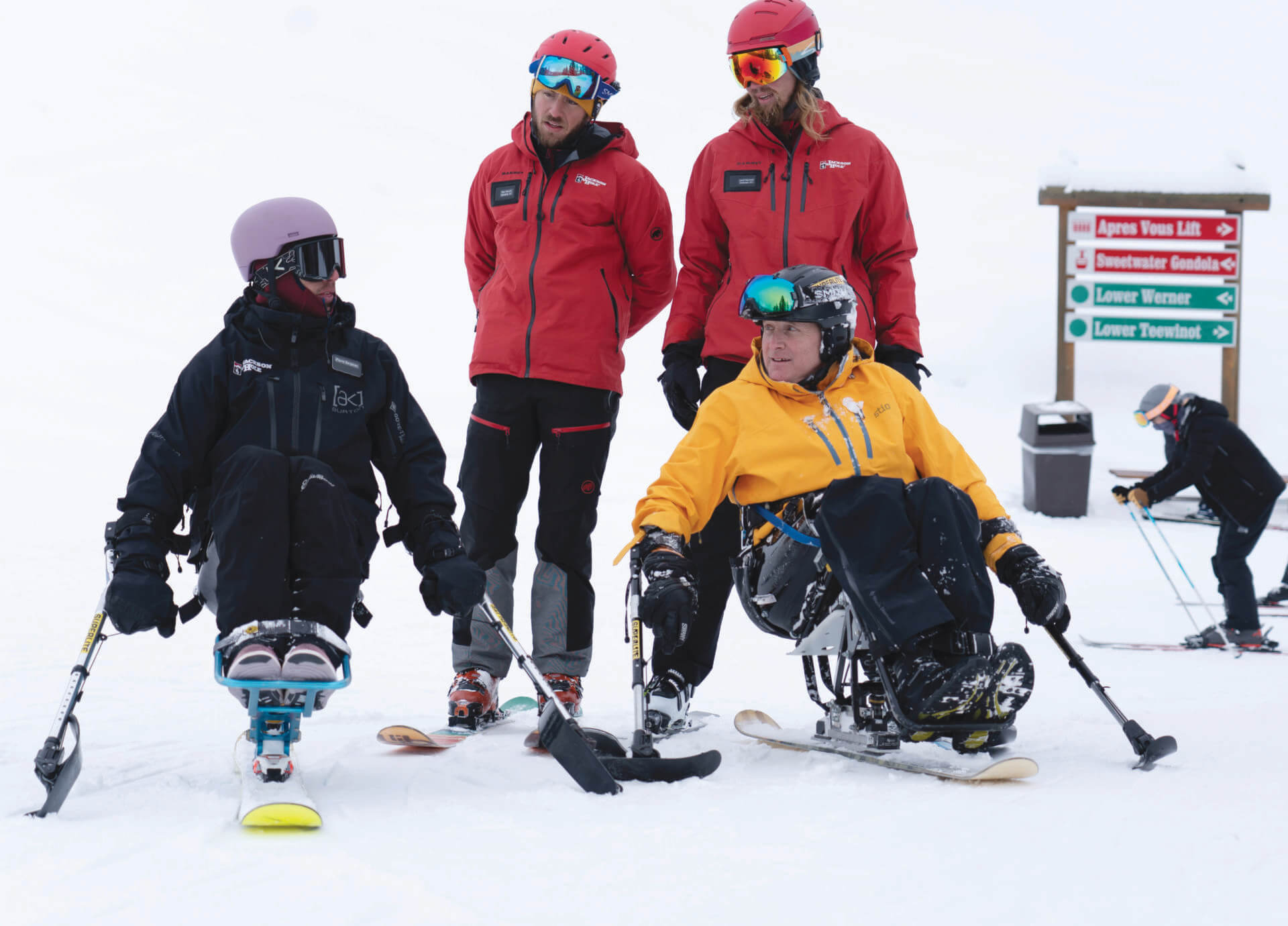
“It was demoralizing, frankly,” he says of his initial attempts at sit-skiing. “I wondered if it was ever going to be fun or if I would ever be good.” But through a Craig Hospital-sponsored adaptive ski trip to Crested Butte, significant “time in the bucket,” and the patience of friends who accompanied him down the beginner and then intermediate slopes, he found his rhythm.
Now, Bergman skis all winter and rides an adaptive mountain bike in the summer. Returning to athletics after his injury was important because he loves mountain sports, but he approached his recovery with a sense of curiosity, not anxious necessity. “I was super open minded about returning to sports and was open to doing whatever it was that worked for me,” he says. “It turns out that there are a lot of adaptive options for skiing and mountain biking equipment, and these sports made me feel the best.” (He tried tennis and basketball, but they weren’t as fun.) And once he got the hang of the adaptive equipment, Bergman discovered he’s “pretty fast,” which is Jackson code for “incredibly speedy.”
Inspired to share the joys of adaptive sports, Bergman joined the staff of Teton Adaptive (see sidebar), a nonprofit organization dedicated to providing recreational opportunities for people with disabilities living in and visiting Jackson Hole. As program manager, he maintains the bike fleet and helps out with water sports when necessary.
With an intimate understanding of the challenges people with disabilities can face in Jackson, Bergman is dedicated to helping make the valley more accessible. He urges the town and county to enforce the American with Disabilities Act, which requires new construction to be fully accessible, calls on existing facilities to remove architectural barriers in public accommodations, and supports Jackson Hole Mountain Resort’s ongoing efforts to improve accessibility. He also hopes to destigmatize Jackson in the eyes of those with disabilities who might be intimidated by the area’s extreme reputation. “I want everyone to experience the outdoors and be in the trees,” says Bergman. “Sometimes folks with disabilities are told they can’t by someone who doesn’t know very much and has no business discouraging anyone. We have so much to offer in Jackson Hole, from paragliding to adaptive mountain biking to adaptive sailing to wheelchair-accessible bike paths, and more. You don’t have to be extreme to come and enjoy the Tetons.” JH

